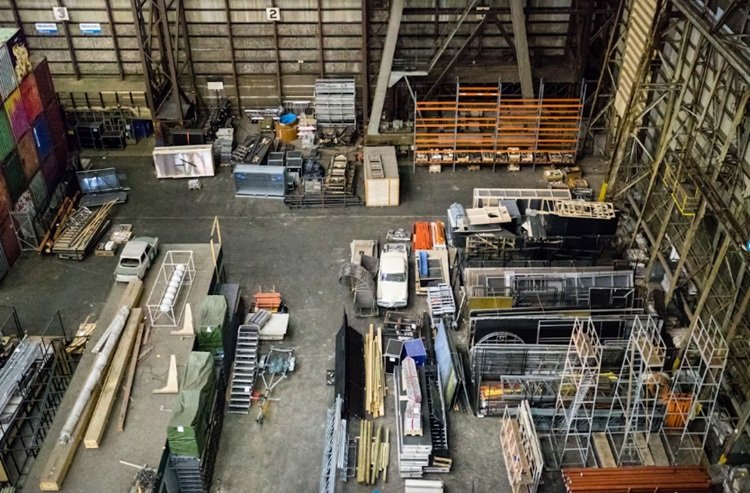Curious about what’s heating up the automotive industry?
Trailer manufacturing is currently undergoing the largest transformation in decades. As the global trailer market size is set to reach $53.72 billion by 2030, companies are scrambling to integrate new technologies that will completely change the industry.
The problem is…manufacturing techniques have largely remained the same, with traditional methods of producing trailers. However, fleet owners are demanding smarter, more efficient trailers, and forward-thinking manufacturers are rising to the challenge to deliver what the industry is asking for.
In this article, You’ll learn:
- Smart Manufacturing Techniques
- Lighter Materials
- IoT & Connected Manufacturing
- Sustainability-Driven Manufacturing
Smart Manufacturing Techniques
First off, something you probably don’t know…
Smart trailer systems market size is valued at $3.54 billion in 2024 and is anticipated to reach $9.32 billion by 2033. This growth is no fluke, it’s due to the fact that IoT enabled trailers are becoming table stakes.
Smart manufacturing techniques now include the integration of sophisticated sensor technologies and telematics systems into the manufacturing of trailers from the ground up. Companies like Dennison are building these systems into their trailers rather than as add-ons.
These Smart Manufacturing Techniques Include:
- Real-time monitoring systems for production lines
- Automated quality control measures using AI-powered sensors
- Predictive maintenance features built into the trailers
- Connected assembly lines that adapt to fluctuating demand
Amazingly, this isn’t just a one-and-done tech integration. These systems learn from each trailer that comes off the production line, employing machine learning algorithms that analyze data patterns and make intelligent predictions to continually improve manufacturing processes and spot potential issues before they become a problem in production.
Let’s take a look at the next mind-blowing trend…
Lighter Materials
Weight reduction is a huge deal in the automotive industry and trailer manufacturers are taking the lead in that respect.
New materials are constantly being developed and utilized to replace heavier steel components, like carbon fiber reinforced polymers and high strength aluminum alloys. The result is much lighter trailers without compromising durability.
For example, East Manufacturing just announced a new lightweight tipper trailer that cuts 1,200 pounds of weight but meets the same strength specifications. Talk about making an impact for both fuel efficiency and payload capacity.
These newer materials have also led to:
- Better fuel efficiency for all hauling vehicles
- Higher payload capacity
- Enhanced corrosion resistance
- Less maintenance needed
And these are just some of the most recent innovations in the world of lightweight trailer manufacturing.
IoT & Connected Manufacturing
Manufacturing facilities are getting smarter by the minute.
The newest trailer production lines now have interconnected systems that communicate in real-time with one another, with sensors placed all throughout the manufacturing process to collect data on quality at every stage, from weld strength to paint thickness.
The smart factory now incorporates:
- Machine learning algorithms that predict quality
- Robotic welding systems with precision control
- 3D printing capabilities for custom parts
- Automated inventory management systems
What’s so cool about this manufacturing approach is that manufacturers can detect defects and resolve them before they become a larger issue. This is resulting in a huge reduction in waste as well as an increase in the quality of the final product.
Smart sensors are now in place that can even monitor things like temperature fluctuations during welding or vibration patterns in assembly equipment. This level of monitoring is ensuring consistent quality across every manufactured trailer while cutting material waste by as much as 15% in comparison to more traditional manufacturing methods.
Sustainability-Driven Manufacturing
Don’t let anyone tell you the green movement is a buzzword or a trend.
Environmental responsibility is the driving force behind a large amount of innovation in trailer manufacturing right now.
Manufacturers are heavily investing in more sustainable production methods, from facilities that utilize solar power to the integration of recycled materials in the trailers themselves. Some manufacturers are even working on developing electric trailer refrigeration units that will dramatically reduce emissions.
The move towards more sustainable manufacturing is in no way by accident. Government regulations as well as customers are demanding that the industry move towards more green practices and manufacturers are finding that these sustainability innovations are leading to cost savings.
These are some of the top innovations being made in sustainable trailer manufacturing:
- Integration of solar panels during manufacturing
- Use of recycled aluminum and steel
- Water-based paint systems
- Energy-efficient manufacturing facilities
The push towards more sustainable manufacturing methods and materials isn’t just about being good corporate citizens. It’s also about the need to meet customer demands as well as regulatory requirements that are only going to get stricter.
Advanced Safety Features
Safety integration starts at the manufacturing floor.
Safety technology integration and advanced safety features are now being built into modern trailers at the time of manufacturing rather than as after-market add-ons. Everything from anti-lock braking systems to collision avoidance systems are being added as standard features on trailers now rather than as optional extras.
Advanced safety features manufacturers are now incorporating include:
- Electronic stability control
- Tire pressure monitoring throughout production
- Automated emergency braking compatibility
- Blind spot detection integration
Safety integration isn’t just improving safety, it’s now becoming a differentiating factor that separates manufacturers in an increasingly competitive market.
Automation and Robotics
Automation in trailer manufacturing is on the rise.
Robotics systems are now being used to handle everything from frame welding to component assembly with a level of precision that simply cannot be matched by human workers. This isn’t leading to less workers on manufacturing floors, it’s freeing up human labor to focus on more value-added work while robots handle more repetitive operations.
Automation is also leading to:
- Consistent weld quality across all products
- Faster production cycles
- Less human error
- 24/7 production capabilities
Modular Manufacturing Techniques
Flexibility is key in the manufacturing of trailers.
Modular production systems are becoming more commonplace as a way for trailer manufacturers to quickly shift production processes to match market demand. Rather than having dedicated production lines for specific trailer types, smart manufacturers are moving towards more flexible production lines that can be retooled in order to produce different trailer configurations.
This enables trailer manufacturers to:
- Rapidly adapt to changes in demand
- Produce smaller batches in a more cost-effective way
- Customization without huge retooling costs
- Efficient resource utilization
Digital Twin Tech
Virtual manufacturing is coming to life.
Digital twin technology is allowing for the development of virtual copies of actual production processes so that manufacturers can test out process changes, optimize workflows, and even predict maintenance needs before they become a problem on the physical manufacturing floor.
The benefits are clear:
- Less downtime for process changes
- Streamlined production workflows
- Predictive maintenance scheduling
- Risk-free testing of new production techniques
Future-Proofing Production Techniques
The future is now for trailer manufacturers.
Any companies that embrace these 5 manufacturing techniques now will be the ones leading the market for years to come. Companies that refuse to move past old traditional methods will only continue to fall behind as customer expectations for trailers continue to evolve.
Key trends to keep an eye on for the future include:
- AI integration in production will increase
- Quality control measures will become more automated
- Sustainability requirements will become more stringent
- Expectations for customization will increase
Conclusion
The trailer manufacturing industry is in the middle of a massive transformation due to advances in smart manufacturing techniques, lightweight materials, and sustainable manufacturing practices. Manufacturers that are jumping on board with these newer manufacturing techniques aren’t just improving their products, they are transforming the industry.
IoT-enabled production lines, advanced materials that cut weight without sacrificing strength, and a move towards more sustainable manufacturing processes are all driving new standards for what is possible in the world of trailer manufacturing. The companies leading the charge aren’t just building trailers, they are building the future of transportation.
The statistics show: as the trailer market is expected to experience major growth in the next decade, the companies that invest in these advanced manufacturing techniques today will be leading the market tomorrow. There is no doubt about it, these innovations will become the standard. The only question is which companies will be first to make them standard.
What are you waiting for? The time to act is now.
Refresh Date: August 22, 2025



